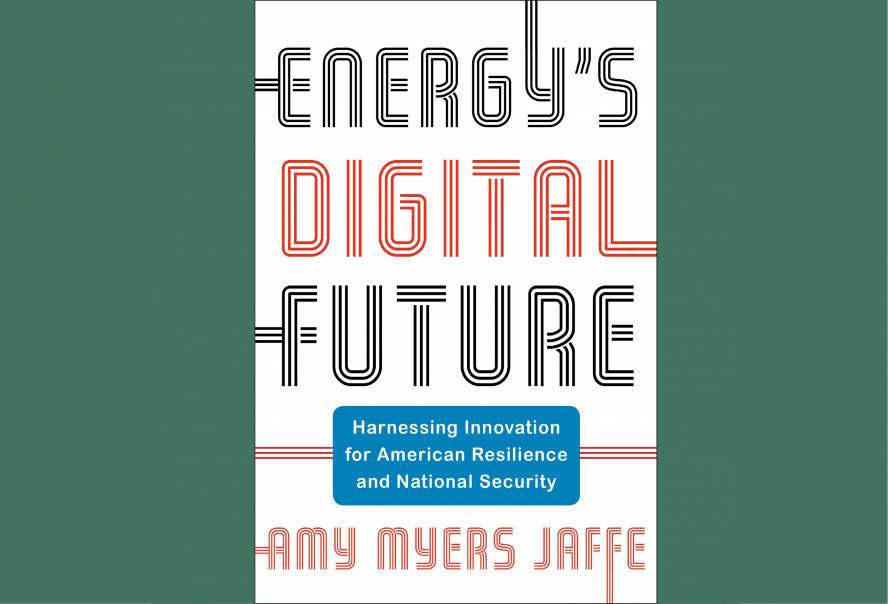-

Hear from Professor Monica Toft
Learn how Professor Monica Toft is shaping the study of global affairs and diplomacy at Fletcher.
Hear from Prof. Toft -

Explore Fletcher academics in action
Fletcher Features offers insights, innovation, stories and expertise by scholars.
Get global insights -
Get application tips right from the source
Learn tips, tricks, and behind-the-scenes insights on applying to Fletcher from our admissions counselors.
Hear from Admissions -

Research that the world is talking about
Stay up to date on the latest research, innovation, and thought leadership from our newsroom.
Stay informed -
Meet Fletcherites and their stories
Get to know our vibrant community through news stories highlighting faculty, students, and alumni.
Meet Fletcherites -

Forge your future after Fletcher
Watch to see how Fletcher prepares global thinkers for success across industries.
See the impact -

Global insights and expertise, on demand.
Need a global affairs expert for a timely and insightful take? Fletcher faculty are available for media inquiries.
Get in Touch
Amy Myers Jaffe Intersects Cyber Security and Environmental Policy
Professor and Managing Director of the Climate Policy Lab Amy Myers Jaffe discusses Cyber Security, Energy, and Policy

Amy Myers Jaffe has been thinking about U.S. energy security for a long time. At the age of 17, her high school history teacher Alan Shapiro entered Jaffe’s essay on the history of the 1973 oil crisis in a history paper competition at Framingham State University. She took the third-place ribbon. Nowadays Jaffe is considering what the advent of digital technologies like autonomous vehicles and smart grids will mean for U.S. national security.
“Cyber security will be the new currency of state power,” Jaffe explains in her newly released book, Energy’s Digital Future: Harnessing Innovation for American Resilience and National Security. The increased digital link up of energy infrastructure and growing trend toward electrification has widened the attack surface for cyber events and opened our energy system up to new kinds of threats. The recent ransomware attack on the Colonial Pipeline, the largest U.S. refined products pipeline and critical backbone to the fuel system of the Eastern United States, should be a wakeup call, Jaffe says. “A new race to electrified self-driving vehicles and drones, armed with artificial intelligence, machine learning, and monster data analytics, is about to revolutionize warfare and change the nature of critical military supply chains,” Jaffe writes in her book. “Computer-assisted, automated energy innovation will soon become a vital national interest… China’s embrace of digital energy innovation as part of its new industrial strategy is challenging America’s vision of itself…”
The barrage of ransomware attacks on multiple U.S. institutions is lowering Americans’ confidence in government’s ability to fulfill its national security role. The irony is that many of the leading technology that are facilitating these cyberattacks are American originated. How the U.S. meets both the domestic and international security challenges of an increasing digital world amidst a major global energy transition will determine future U.S. competitiveness, military strength, and environmental performance. “We are at a Sputnik moment,” Jaffe told CNBC on Tuesday, May 11 in the wake of the Colonial Pipeline shutdown.
To ensure that the digital energy future is one that protects democratic governance and institutions while also addressing climate change, the United States must step up its leadership not only in technology development but also in the rules and precedents of its deployment. The technologies themselves are agnostic on human rights or carbon emissions, Jaffe explains. It is for us to shape how they serve us, she adds. China’s industrial campaign to dominate digital export markets could facilitate its ability to establish its own rules for cyber intrusion that could be contrary to Western values and interests. The United States needs to lead by example in regulating emerging technologies to ensure they are utilized to promote national security and individual rights, not the opposite.
Amy Myers Jaffe is the Managing Director of The Fletcher School’s Climate Policy Lab and teaches The Fletcher School’s class in International Energy Policy, which will be offered to incoming students this autumn. She also serves as co-chair of the steering committee of the Women in Energy Initiative at Columbia University’s Center on Global Energy Policy. That initiative, which includes The Fletcher School, NYU Center for Global Affairs, Rutgers Energy Institute, and MIT Energy Initiative, among others, seeks to elevate women in energy by addressing institutional barriers to entry and empower women to achieve career growth through mentoring, enhanced visibility and broader networks. Jaffe offers office hours for women seeking mentoring and career coaching as part of the program.
A leading expert on global energy policy and sustainability, Jaffe has previously served as the David M. Rubenstein Senior Fellow for Energy and the Environment at the Council on Foreign Relations and Executive Director for energy and sustainability at the University of California, Davis, where she conducted research on California’s low or zero carbon fuels and transportation policy. Jaffe, who began her career as a journalist writing about energy, is a member of the Global Future Council on Net Zero Transition at the World Economic Forum (Davos) and the Council on Foreign Relations.
For more about the book Energy’s Digital Future, click here. Professor Jaffe is managing director of the Fletcher School’s Climate Policy Lab, which conducts independent, evidence-based research and policy analysis, providing objective insights that enhance effective climate-related choices for policy makers across the geographic and ideological spectrum. For more about Climate Policy Lab, click here.

